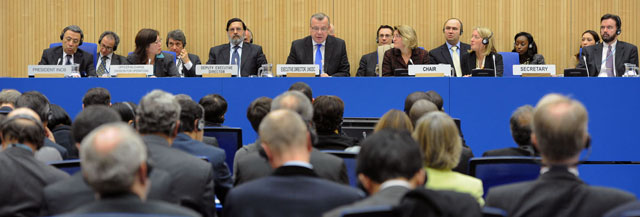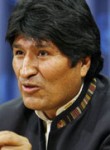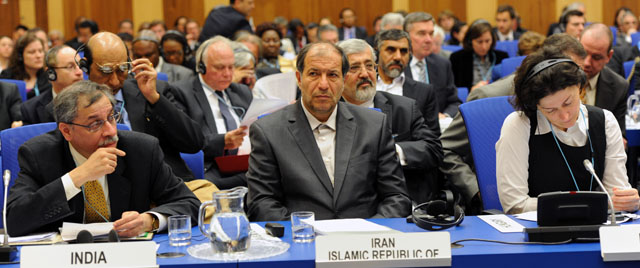At the St. Thomas Day celebration in New Delhi on December 18, 1955, Dr. Rajendra Prasad, the then President of India, said: "St. Thomas came to India when many of the countries of Europe had not yet become Christian, and so those Indians who trace their Christianity to him have a longer history and a higher ancestry than that of Christians of many of the European countries."
It would be appropriate to cite here an extract from the radio message of Pope Pius XII on 31 December, 1952 on the occasion of the 19th century celebrations of the arrival of the Apostle in India: "Nineteen hundred years have passed since the Apostle came to India [...] During the centuries that India was cut off from the West and despite many trying vicissitudes, the Christian communities formed by the Apostle conserved intact the legacy he left them [...] This apostolic lineage, beloved sons and daughters, is the proud privilege of the many among you who glory in the name of Thomas Christians and we are happy on this occasion to acknowledge and bear witness to it."
There are people who doubt about the apostolate of St. Thomas in India. However, according to the tradition, St. Thomas, one of the twelve apostles of Jesus Christ, came to India in 52 A.D., and landed at Kodungallur on the Malabar (presently Kerala) coast. He preached the Gospel to the Brahmin families of Kerala, many of whom received the faith. He established seven Churches there: Kodungallur, Kottakkavu, Palayur, Kollam, Kokkamangalam, Niranam and Chayil. It is also a tradition that he frequently visited Malayattoor hills for prayer. Later, he moved on to the east coast of India. He was martyred in 72 A.D. by a fanatic at Little Mount (near Madras) and his body was brought to Mylapore (near Madras) and was buried there. His tomb is venerated until this day.
This tradition is confirmed by the testimonies of many of the Fathers of the Church. It was not difficult for the Apostle to come to India, because extensive trade relations existed between Malabar and the Mediterranean countries even before the Christian Era. There is nothing to contradict this tradition.
Trade Relationships
Extensive trade relations existed between Malabar and the Mediterranean countries even before the Christian era. The numerous golden coins of the Roman Empire which have been found all over the south, as well as many recent discoveries, offer abundant proof that Roman trade centers existed along the southern coasts of India. While King Solomon was ruling over the Israelites (B.C. 970-930), his warships brought back to his country valuable merchandise supposed to be from Muziris (Cranganore), a defunct international port of Malabar. While discussing the dealings of the Phoenicians with Muziris, the Roman historian Pliny (A.D. 23-79) complained that every year they were sending large sum of money to India for silk, pearls, gems and spices. He also remarked that the Malabar ships were visiting the Persian Gulf, Aden, the Red Sea and Egypt. Pliny, Ptolemy (A.D. 100-160) and the Periplus of the Erythraean Sea give much detailed information about the trading centers of Malabar. Diplomatic relations between India and Roman Empire existed even before the Christian era. There were Jewish colonies in Malabar in the first century.
Traditions
According to the Acts of Judas-Thomas [The two Apostles are meant: 1) Jude Thaddeus and 2) Thomas. Judas Iscariot is absolutely not meant.], which probably originated in the last quarter of the second century A.D. or the first years of the third, the Apostle St. Thomas preached the Gospel in the land of Gundaphares, a Parthian King, during the second quarter of the first century.
Besides this literary tradition favoring a Thomistic apostolate on the north-west borders of Hindustan, there is another, in favor of his preaching among the Dravidian populations of the south where there is the living presence of a strong body of Christians. The findings of Palayur, Arthad, Nilamperur, and so on, the sanctuary of Mylapore venerated as the Martyrium of the Apostle, all bear strong testimony to the reliability of the local tradition of Malabar. It is believed that the bones of the Apostle were removed from India to Edessa during the lifetime of the king under whom he suffered martyrdom. According to Cardinal Parecattil, the first Cardinal of the Thomas Christians, the apostolate of St. Thomas in India is "a tradition not written in papyrus, not carved on stone but buried in the hearts of his (St. Thomas) spiritual children from whom it can never be removed." From time immemorial these Christians were called "Thomas Christians". Tradition has it that the Apostle ordained two bishops, Kepha and Paul, respectively for Malabar and Coromandal (Mylapore). This supposedly marks the beginnings of the first hierarchy of India.
Testimonies
The testimonies of Eusebius (early 4th cent.) and St. Jerome (342-420 A.D.) about the mission of Pantaenus, a Christian philosopher sent by bishop Demetrius of Alexandria, "to preach Christ to the Brahmins and to the philosophers of India" in A.D. 190 affirms the tradition. The testimonies of the Fathers of the Church like St. Ephrem (306-373 A.D.), St. Gregory of Nazianzen (324-390 A.D.), St. Ambrose (333-397 A.D.), St. Jerome, St. Gregory of Tours (6th cent.) and Isidore of Seville (7th cent.) are also notable. In various ways, they speak about the apostolate of St. Thomas, about the Christians of India, and about the priestly succession there. This is also attested to by several ecclesiastical calendars, martyrologies and other liturgical books of the Coptic, Greek, Latin and Mesopotamian Churches.
source: http://berchmans.tripod.com/apostle.html





